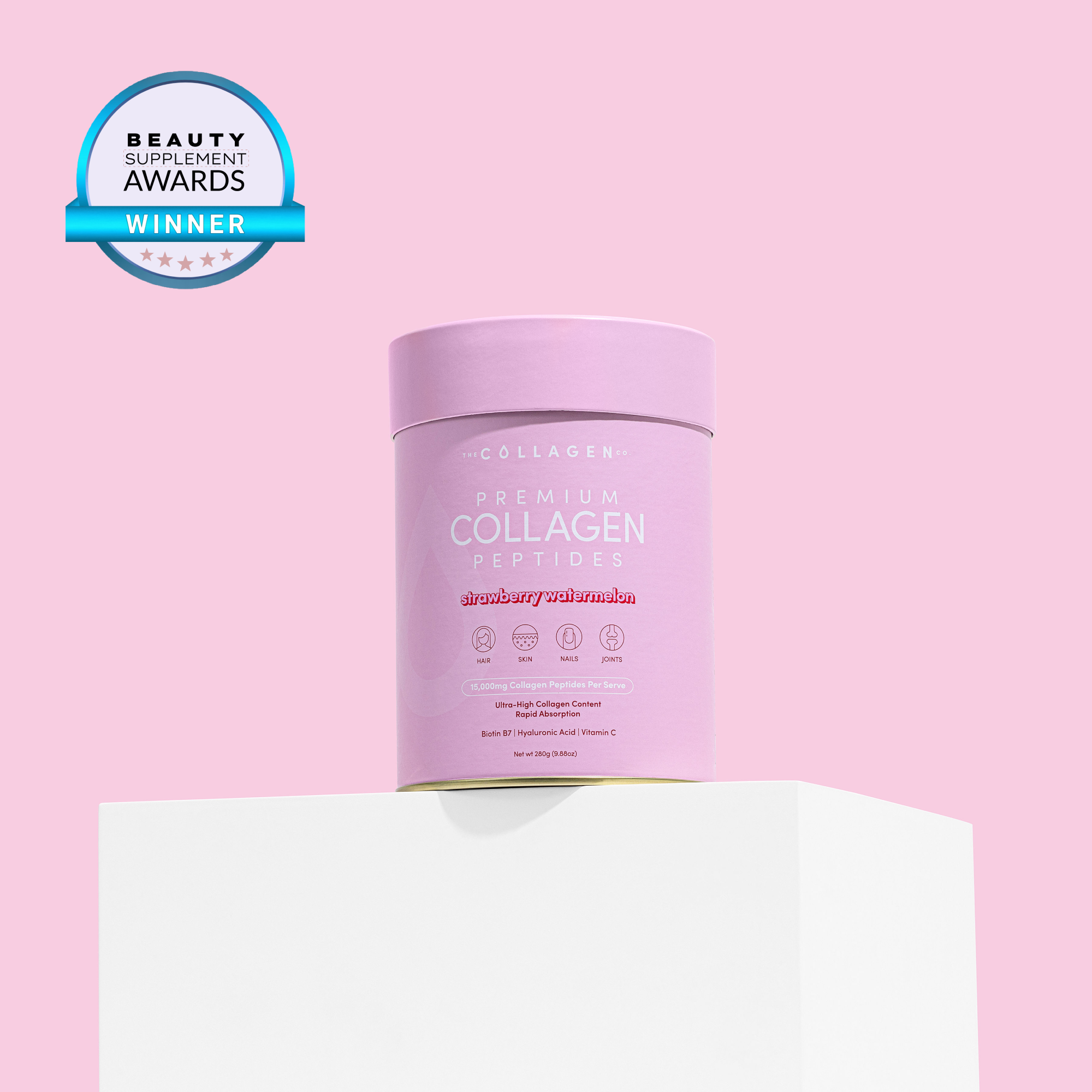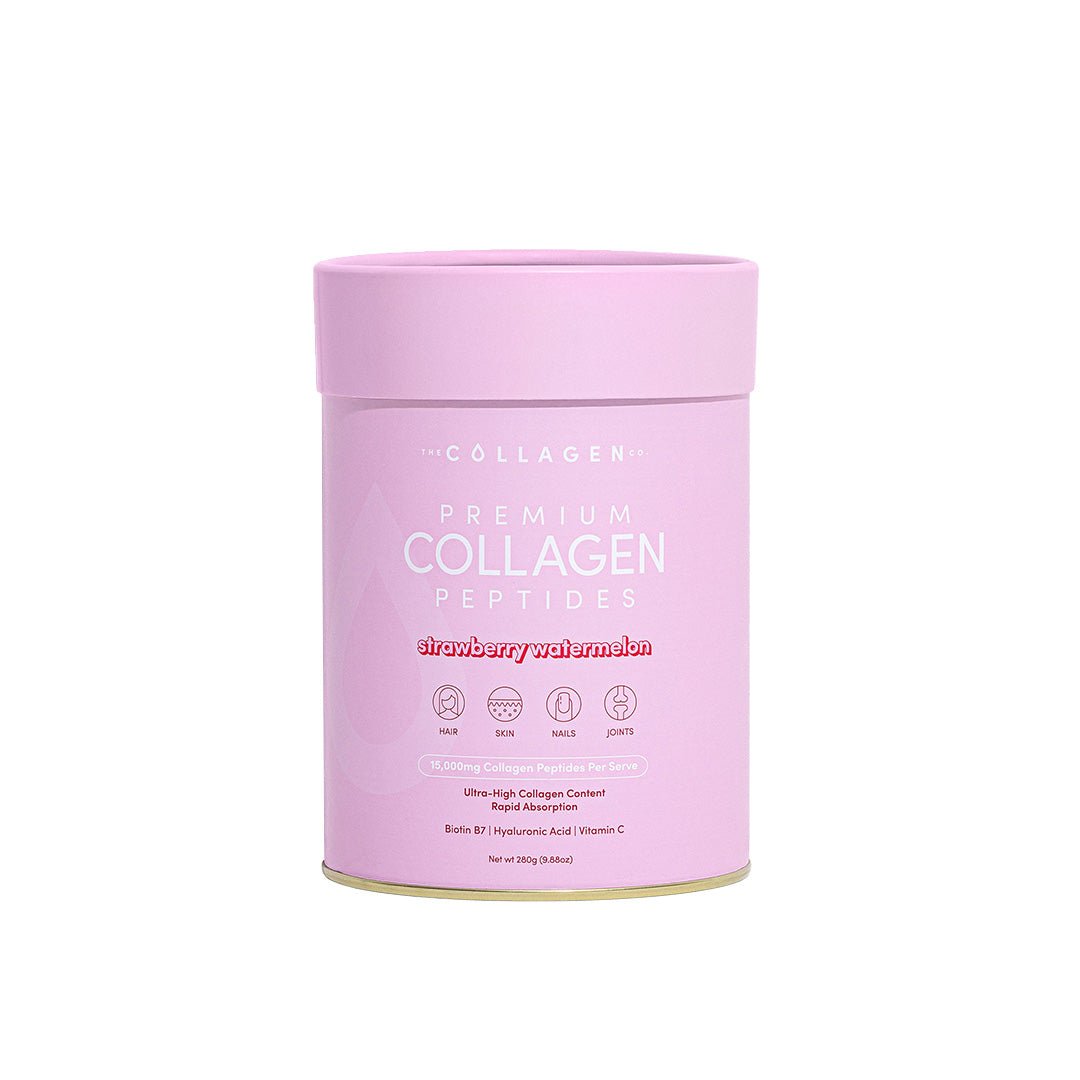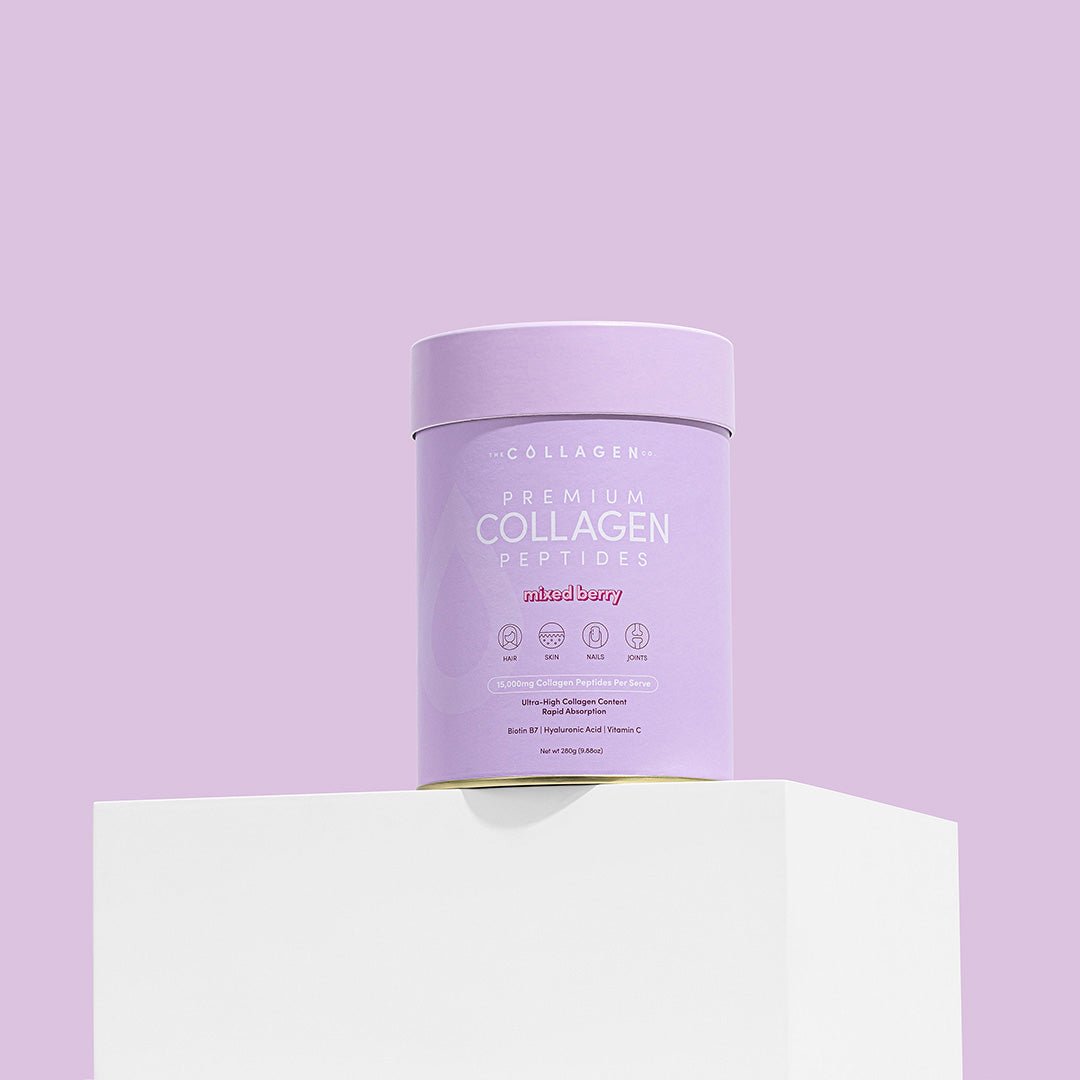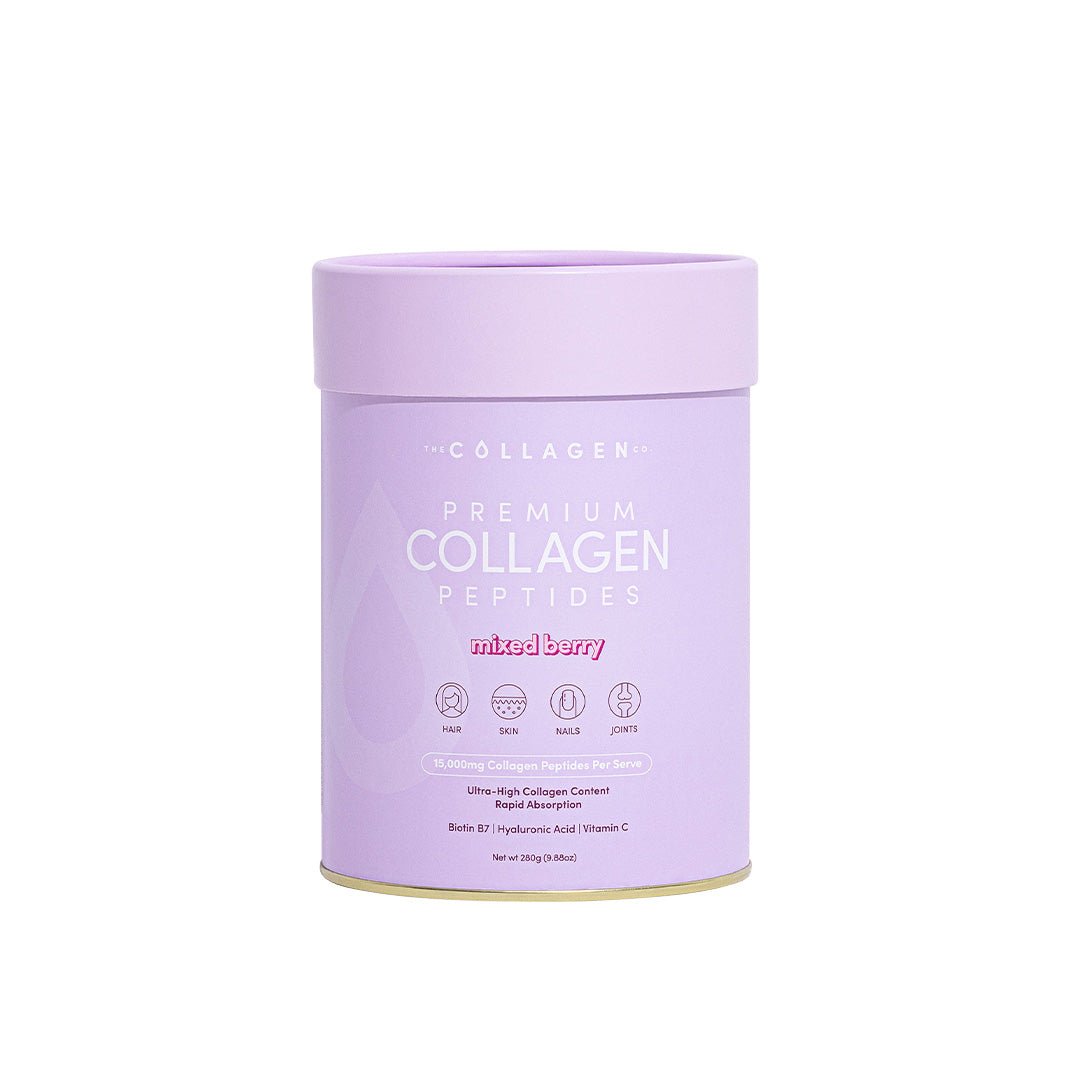Postpartum Hair Loss: Why It Occurs and How to Manage
Posted 10th October 2023
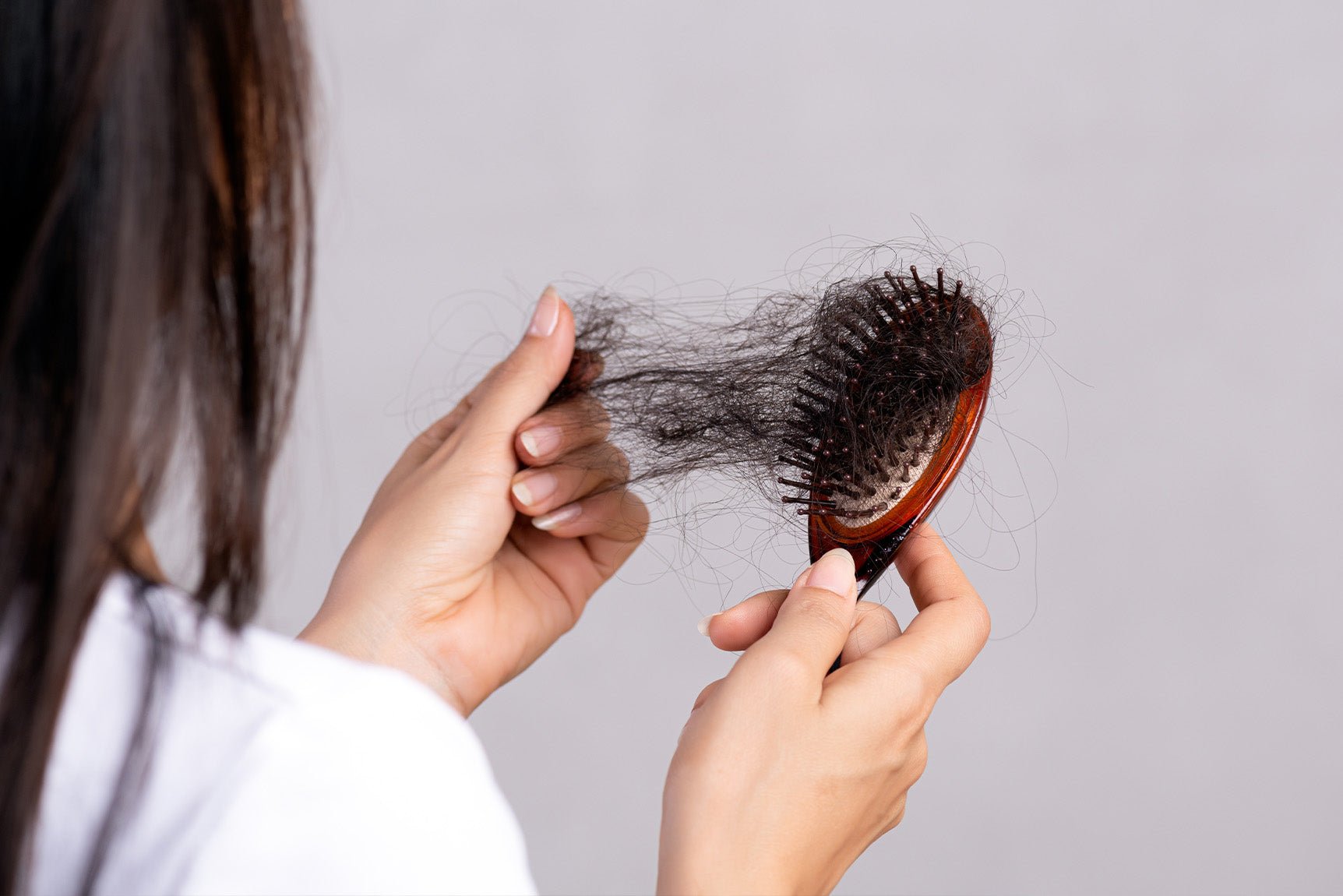
Postpartum hair loss affects 20% to 68% of women who have just given birth.
But common as it may be, statistics offer little comfort when you see hamster-sized clumps of hair clogging your shower drain. Or a Barbie doll’s hair worth of strands tangled up in your paddle brush when you (finally) muster the courage to run it through your hair.
So, this article outlines 4 useful postpartum hair loss tips that’ll actually help you better cope with this stressful phase.
Before that, though …
What causes postpartum hair loss?
Two words: hormonal changes. There are 3 distinct phases to hair growth:
- Anagen or growing phase: Active hair growth period lasting between 2 to 6 years (for hair on the scalp). Under normal circumstances, 85% to 90% of your hair is in this phase at any time.
- Catagen or transitional phase: A short, transitional phase lasting about 10 days or so where the hair follicle shrinks and hair growth slows. Typically, only about 5% of your hair is in this phase at any time.
- Telogen or resting phase: Resting phase where the hair follicle is dormant; lasts about 3 months. About 10% to 15% of your hair is in this phase at any time. In the post-telogen phase, the follicle releases the hair, and the hair falls out.
Note the keywords "under normal circumstances". Pregnancy changes the hair growth cycle.
Having a bun in the oven increases your estrogen levels, temporarily keeping your hairs in the anagen (growth) phase for longer — delaying them from moving into their telogen phase.
This is why you might have found yourself with Herbal-Essences-commercial-worthy hair during pregnancy. But once your baby is out and estrogen levels fall, you'll start shedding all the extra hair you gained during pregnancy.
And … how long does postpartum hair loss last? Research suggests 6 to 24 weeks and, rarely, up to 15 months.
Could estrogen therapy be the answer?
Before you think of using estrogen therapy to restore thick, luscious hair, know this: abnormally high estrogen levels in women have been linked with high blood pressure, blood clots, and breast and cervical cancer.
That said, while you cannot prevent or reverse postpartum hair loss (you’ve got to let it run its course), there are 4 things you can do to encourage new hair growth and discourage shedding.
Coping with postpartum hair loss
#1: Go easy on your hair
When dealing with a:
- New-born prone to spitting up milk or
- Toddler who’s just discovered their grip strength
… it’s only natural that you’d want to keep your hair out of your face — but you should try to avoid tight hairdos that pull on the scalp, potentially leading to traction alopecia, exacerbating postpartum hair loss.
Prime examples include tight ponytails, buns, and braids.
And if seeing your newly visible scalp and/or patchy hair spots causes distress, headbands, scarves, bandanas, and even wigs could be fun accessories to disguise postpartum hair loss.
Just make sure you wear them in a way that doesn’t pull on your hair.
#2: Find ways to reduce stress
As a mum, you’re probably on a first-name basis with stress.
Unfortunately, all that stress isn’t good for your hair. High levels of cortisol (i.e., the stress hormone) could cause inflammation that signals your hair follicles to prematurely shift from the anagen to the telogen phase, where hair falls out.
So, if need be, ask your partner or a trusted family member, friend, or co-worker to lend a hand with the baby or chores (e.g., washing the dishes, vacuuming the house, or walking the dog).
Then, take the time to practice stress-relief strategies, such as meditating, exercising, journaling, and napping — psst: sleep better, and wake up with a renewed radiance with Collagen Dream.
You might also want to check out these 4 postpartum care tips all new mums should know.
#3: Eat a healthy, well-balanced diet
Nourishing your body with a diet primarily made up of whole, minimally processed foods and lots of fruits and vegetables increases the likelihood of you getting the macro- and micro-nutrients essential for hair growth.
Key nutrients to look out for include:
- Iron: Many postpartum women — even those in high-income countries — fail to get enough iron. And according to this 2022 meta-analysis published in Skin Appendage Disorders, women with low iron levels are more likely to have hair loss. So, in other words, not getting enough iron could cause you to shed more than you already are from postpartum hair loss. Note: the WHO recommends a daily iron intake of 10 to 30 mg for lactating women.
- Biotin: Breastfeeding puts mums at a higher risk of biotin deficiency, which is correlated to increased hair loss and thinning. So, strive for a daily biotin intake of 30 to 35 micrograms daily.
- Omega-3 fatty acids: These are known to exert potent anti-inflammatory effects that may help counter stress- and oxidative damage-induced hair loss. No wonder this 2015 study published in the Journal of Cosmetic Dermatology found that women who supplemented with omega-3 fatty acids daily reported lower hair loss and improved hair density!
- Protein: The building block of everything in your body, including your hair. Research suggests that the protein needs of breastfeeding mums range between 1.7 to 1.9 g per kg of body weight. For reference, that'll mean a daily protein intake of 102 to 114 g for someone weighing 60 kg.
Wait a minute. That sounds like … a lot? If you have difficulties stomaching that much protein, consider taking a hydrolyzed collagen supplement, like our Premium Collagen Peptides, which provides 13.5 g of protein in a single, delicious serving.
Beyond providing your body with the building blocks it needs for healthy, strong hair, hydrolyzed collagen peptides also support hair health by:
- Exerting anti-inflammatory effects on the hair follicles and
- Promoting scalp health
Just look at the difference it’s made for Emma and Jeanette, customers of The Collagen Co who struggled (yes, past tense!) with postpartum hair loss:


Don’t think we need to say more. Shop Premium Collagen Peptides here, or click here for our Beauty Marine Collagen, a pescatarian-friendly alternative.












